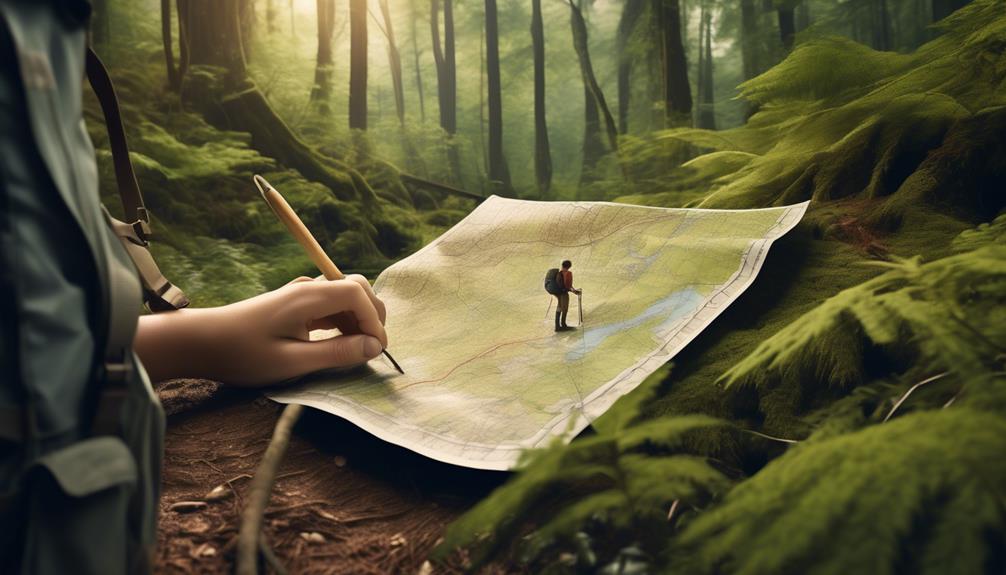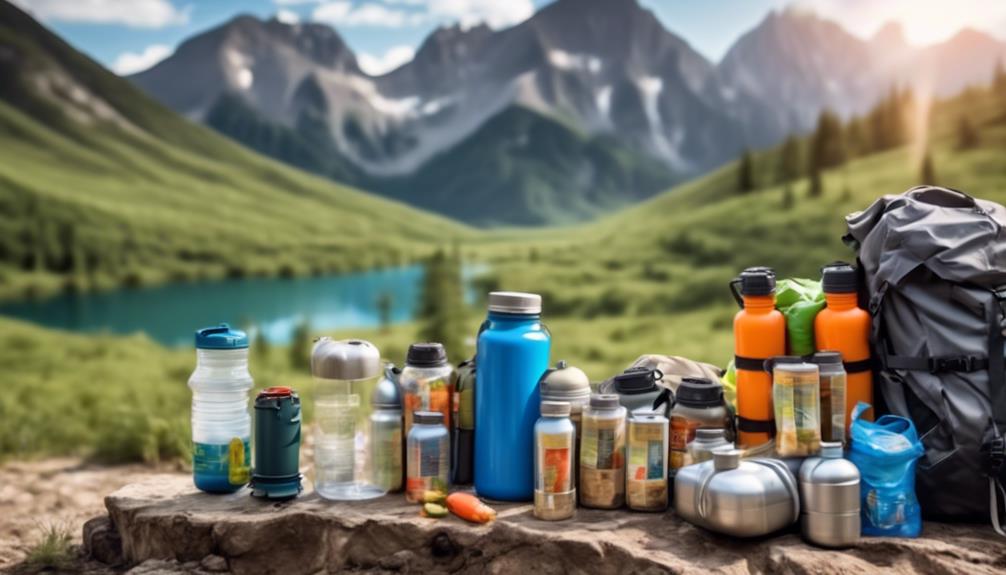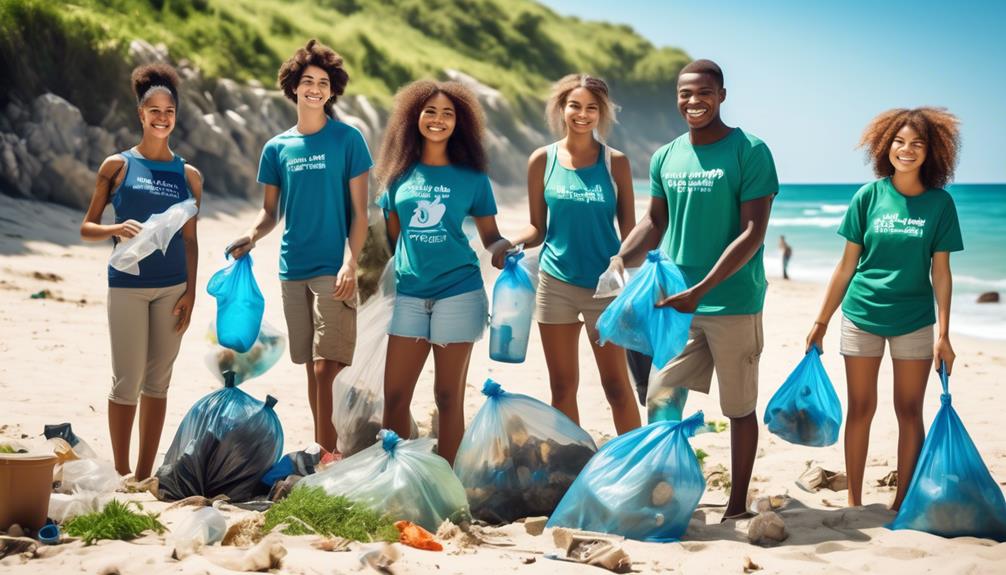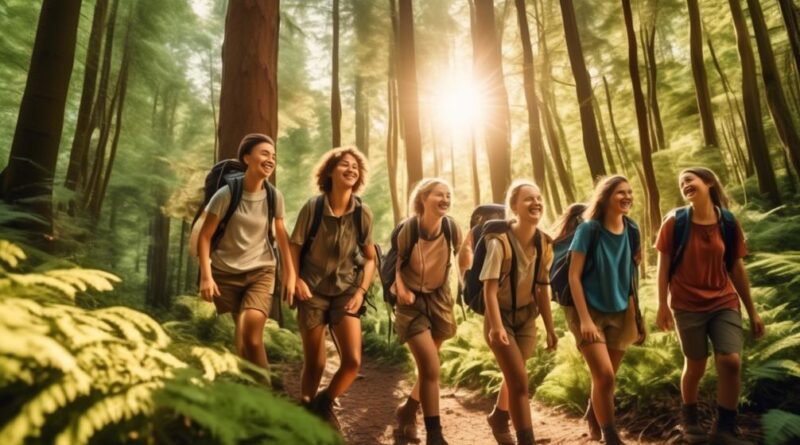14 Essential Tips for Youth-Oriented Survival Holidays
You might have heard that survival holidays can be both exhilarating and challenging for young adventurers. But how do you ensure that your youth-oriented survival holiday is not only an unforgettable experience but also a safe and successful one?
With 14 essential tips, you can be well-prepared for the unexpected and make the most of your adventure. From packing essentials to mastering survival skills, each tip is crucial for an enjoyable and fulfilling experience in the great outdoors.
Packing Essentials
When packing for a youth-oriented survival holiday, make sure to include essential items such as a durable tent, a compact sleeping bag, and a reliable water filtration system. Clothing selection is crucial for staying comfortable and safe. Pack moisture-wicking clothing to keep dry and warm, and don't forget to bring a waterproof jacket and sturdy hiking boots. Organize your gear efficiently by using a backpack with multiple compartments, making it easier to access what you need quickly.
Shelter building and fire starting are essential skills for survival. Along with a tent, consider including a lightweight tarp for additional protection from the elements. A compact, portable stove or fire starter kit should also be on your packing list. These items will help you stay warm and cook food, contributing to a more comfortable experience in the wilderness.
When it comes to clothing selection, pack versatile and durable items that can be layered for warmth or removed to stay cool. Choosing moisture-wicking fabrics will help regulate body temperature and keep you dry.
Additionally, organizing your gear efficiently is key to a successful trip. Use stuff sacks or packing cubes to keep clothing and equipment separate and easy to find. This method also helps prevent items from getting lost or damaged during your travels.
Survival Skills Training
As you prepare for your youth-oriented survival holiday, mastering essential survival skills training will be crucial for your safety and confidence in the wilderness. Shelter building is a fundamental skill that you'll need to learn. Knowing how to construct a sturdy shelter using natural materials found in the environment can protect you from the elements and provide a secure place to rest. Look for overhanging branches, fallen trees, or large rocks that can serve as a natural foundation for your shelter. Then, gather materials such as branches, leaves, and moss to create a waterproof and insulated structure.
Another vital skill to focus on during your survival skills training is fire making. Being able to start a fire isn't only essential for warmth but also for cooking food and purifying water. Practice using different fire-starting methods such as friction-based techniques like the bow drill or hand drill, as well as using flint and steel or a magnesium fire starter.
Additionally, understanding the importance of fire safety and how to properly extinguish a fire is crucial to minimize the risk of wildfires.
Navigation and Orientation

How can you effectively navigate through unfamiliar terrain during your survival holiday?
When it comes to navigating through unfamiliar terrain, there are several essential skills and tools that can help you find your way. Map reading and compass use are fundamental skills that can guide you through the wilderness. Familiarize yourself with maps of the area and learn how to interpret them. A compass can provide you with a sense of direction and help you stay on course, especially in areas with limited visibility.
In addition to map reading and compass use, paying attention to landmarks and practicing natural navigation can be invaluable. Look for prominent natural features such as mountains, rivers, or distinctive trees that can serve as reference points on your journey. Understanding natural navigation techniques, such as observing the sun, moon, and stars, can also help you determine direction when other methods are unavailable.
It's important to stay aware of your surroundings and continually update your mental map as you progress. Take note of changes in the landscape and make adjustments to your route as needed. By honing your navigation skills and staying observant, you can confidently navigate through unfamiliar terrain and ensure a safer and more enjoyable survival holiday.
Campsite Setup and Safety
To ensure a safe and secure camping experience, prioritize setting up your campsite in a well-lit and clear area away from potential hazards. When selecting a tent, choose one that's suitable for the weather conditions and terrain of your camping location. Ensure that your tent is pitched on level ground and securely staked to prevent it from collapsing in case of strong winds or rain.
Additionally, follow campfire safety guidelines to prevent accidental wildfires. Clear the area around the fire pit from any flammable materials and never leave a campfire unattended.
When camping in areas known for wildlife encounters, take precautions to minimize potential conflicts. Store food and scented items securely to avoid attracting animals to your campsite.
Familiarize yourself with first aid techniques for treating common camping injuries and ailments. Pack a well-stocked first aid kit and know how to use its contents to provide basic medical care if needed.
Food and Water Management

After securing your campsite, it's crucial to properly manage your food and water to ensure a successful and safe camping experience.
When it comes to food preservation, make sure to pack non-perishable items such as canned goods, dried fruits, and nuts. Utilize coolers with ice packs for perishable items and keep them in the shade to maintain freshness. Additionally, consider bringing a portable camping stove for cooking meals and boiling water.
Hydration techniques are essential for staying healthy and energized during your outdoor adventure. Always have a sufficient supply of water and a means to purify more if needed. Hydration packs or water bottles with built-in filters are convenient options. It's also wise to familiarize yourself with local water sources and purification methods such as boiling or using water purification tablets.
To minimize the risk of food contamination, practice proper food handling and storage. Keep raw meats separate from other foods, and always cook them to the recommended internal temperature. When it comes to leftovers, promptly refrigerate them to prevent spoilage. Dispose of food waste responsibly to avoid attracting wildlife to your campsite.
Emergency Preparedness
Ensure you have a well-stocked first aid kit that includes essential items for treating minor injuries and illnesses. When preparing for a survival holiday, having a comprehensive first aid kit is crucial for handling unexpected medical situations.
In addition to the first aid kit, it's important to have a strong communication strategy in place to ensure that help can be summoned if needed.
- Antiseptics and Bandages: Stock up on antiseptic wipes, alcohol pads, and a variety of bandages to clean and cover wounds. These items are essential for preventing infections and promoting healing.
- Medications: Include a selection of over-the-counter medications such as pain relievers, antihistamines, and anti-diarrheal medication. These can help alleviate common ailments and discomfort, providing relief until further medical assistance is available.
- Emergency Contact Information: Have a list of emergency contacts, including local emergency services and relevant personal contacts. In case of an emergency, having access to this information can be critical.
In addition to the first aid kit, it's important to establish a communication strategy with your group. Make sure everyone knows how to use the communication devices available, whether it's a satellite phone, walkie-talkies, or another form of communication. Set up a communication plan outlining how to call for help and what to do in different emergency scenarios.
Being prepared with both first aid supplies and a communication plan will help ensure a safer and more secure experience during your survival holiday.
Environmental Awareness

Consider incorporating reusable and eco-friendly products into your survival holiday gear to minimize environmental impact. When embarking on a youth-oriented survival holiday, it's crucial to prioritize eco-friendly practices and conservation efforts. Opt for reusable water bottles, solar-powered chargers, and biodegradable toiletries to reduce waste and minimize your carbon footprint. By choosing gear made from sustainable materials, you can contribute to habitat preservation and wildlife observation, ensuring that your holiday has a positive impact on the environment.
During your survival holiday, make a conscious effort to practice Leave No Trace principles. Avoid disturbing wildlife and their habitats, and always adhere to designated trails to minimize your impact on the ecosystem. When setting up camp, choose a site that has already been used to prevent further disruption of the environment. Additionally, be mindful of waste disposal and pack out all trash to maintain the pristine condition of the wilderness.
Participating in conservation efforts during your survival holiday can also be incredibly rewarding. Consider volunteering for local environmental organizations or participating in habitat restoration projects. This hands-on approach allows you to directly contribute to the preservation of natural spaces while gaining a deeper understanding of the environment and its inhabitants.
Group Dynamics and Leadership
When it comes to group dynamics and leadership during your youth-oriented survival holiday, fostering a sense of environmental awareness and teamwork will be essential for a successful and impactful experience. Group dynamics play a crucial role in the overall success of your adventure. Effective group decision making and strong leadership are vital for overcoming challenges and fostering a sense of unity within the group.
Here are some essential tips to help you navigate group dynamics and leadership during your survival holiday:
- Encourage Open Communication: Create an environment where everyone feels comfortable expressing their thoughts and ideas. Encouraging open communication fosters trust and allows for better group decision making.
- Promote Team Building Activities: Engage in team building exercises to strengthen bonds and trust within the group. Activities such as problem-solving challenges or trust-building exercises can enhance teamwork and collaboration.
- Delegate Responsibilities: Effective leadership involves delegating tasks based on individual strengths. By distributing responsibilities, everyone feels valued and contributes to the success of the group.
Frequently Asked Questions
What Are Some Tips for Staying Entertained and Engaged During Downtime at the Campsite?
To stay entertained and engaged during downtime at the campsite, try group games and nature appreciation. Engage in mindfulness practices to fully immerse yourself in the present moment and make the most of your surroundings.
How Can I Ensure I Am Respecting and Preserving the Natural Environment During My Survival Holiday?
To ensure you're respecting and preserving the natural environment during your survival holiday, practice responsible conservation and eco-friendly practices. Avoid littering, stick to designated trails, and minimize your impact on the ecosystem.
What Are Some Strategies for Managing Conflicts and Disagreements Within the Group During the Trip?
When managing conflicts and disagreements within the group during the trip, focus on open communication, active listening, and compromise. Address issues promptly and respectfully. Understand and navigate group dynamics to foster a positive and harmonious environment for everyone.
Are There Any Specific Emergency Communication Devices or Tools That Are Recommended for Youth-Oriented Survival Holidays?
For youth-oriented survival holidays, it's crucial to have reliable emergency communication devices and tools. Consider bringing a satellite phone, personal locator beacon, and two-way radios. These can be lifesaving in remote areas.
How Can I Incorporate Leadership and Teamwork Skills Into My Experience During the Trip?
To incorporate leadership activities and team building games into your trip, consider organizing group challenges like scavenger hunts or problem-solving tasks. Encourage everyone to take on leadership roles and work together to achieve common goals.
Conclusion
In conclusion, youth-oriented survival holidays can be an exciting and rewarding experience for young adventurers. By packing essentials, learning survival skills, and practicing environmental awareness, you can ensure a safe and enjoyable trip.
Remember to stay prepared for emergencies, work on group dynamics, and embrace leadership opportunities. With these essential tips in mind, you'll be ready to tackle any challenges that come your way on your next survival holiday.
So, pack your bags and get ready for an unforgettable adventure!
